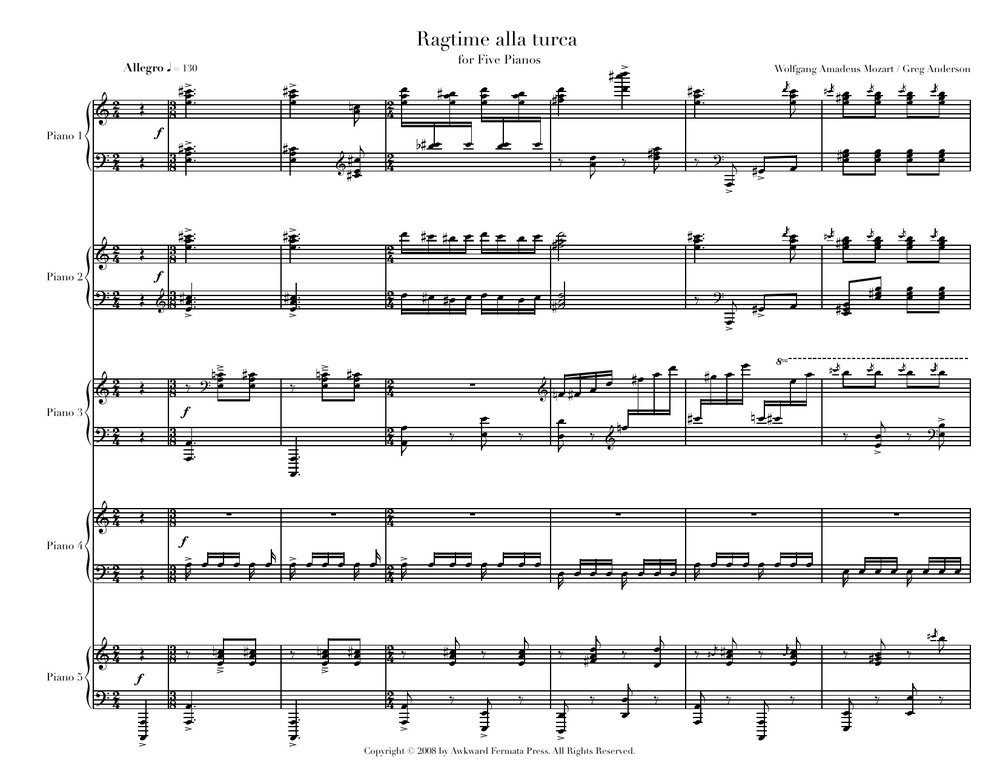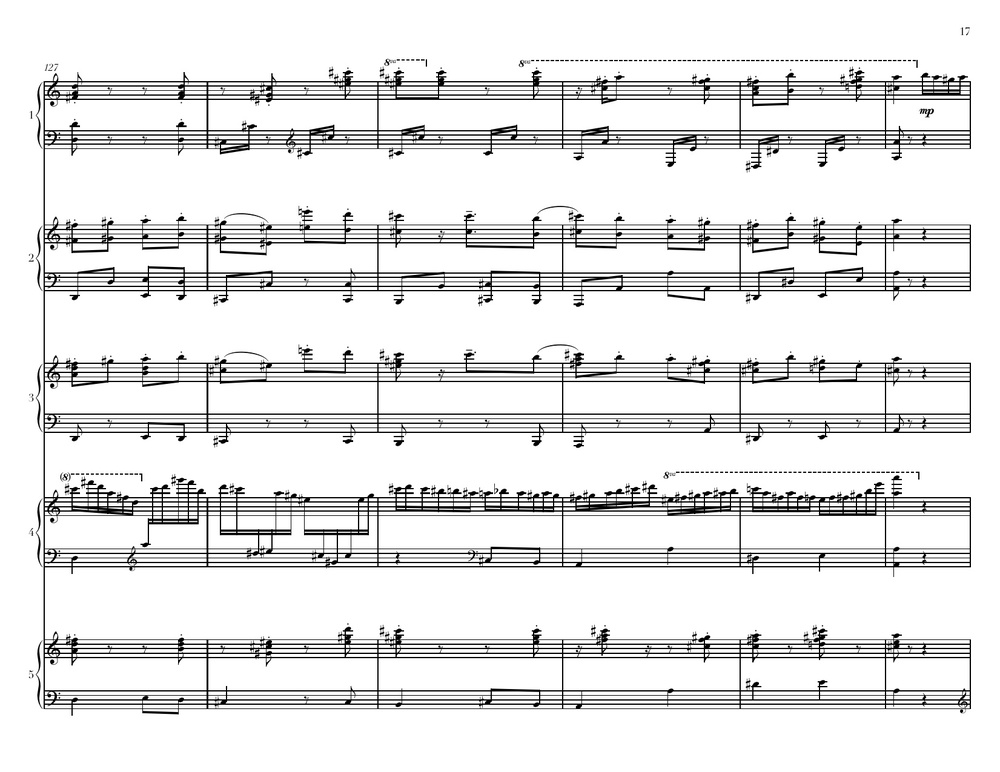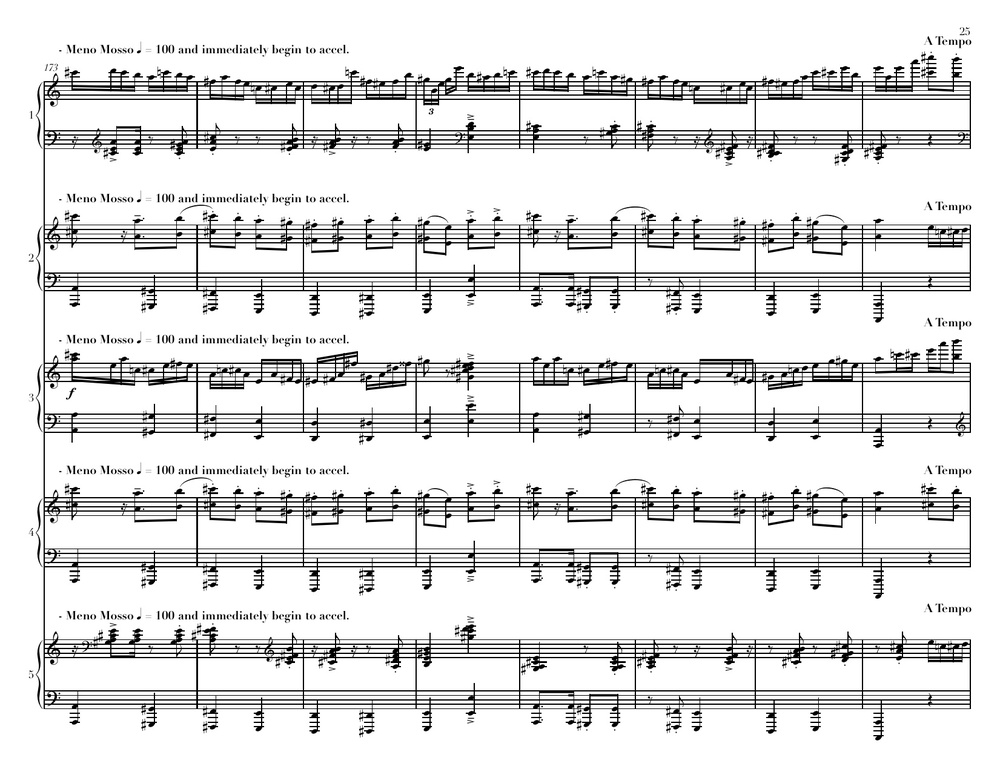“It must never be forgotten that in military music noise is a primary object…”
RAGTIME ALLA TURCA
In his beloved “Rondo alla turca” (from his Piano Sonata in A major, K. 331), Mozart appropriated a number of characteristics from Turkish military music, most notably a predilection for noise. One might assume that such an ostensibly “serious,” “Classical” piece was solely meant for a quiet concert hall, but in actuality the composition was intended for a fun, informal setting. It was also the perfect piece to utilize the “janissary pedals” — clamorous cymbal, triangle, or bass drum effects — featured on many pianos of Mozart’s day!
The world has certainly changed since this music was composed: in Mozart’s time, audiences would have delighted in the frightening yet exciting exoticism of his Turkish Rondo, but to modern listeners, this music does not necessarily sound particularly exotic. We composed our Ragtime alla turca to help audiences connect with the spirit of Mozart’s original. Just as he appropriated elements of the Turkish style into his “Rondo alla turca,” we have appropriated elements of Mozart’s music into our composition. Although our piece diverts considerably from the notes of Mozart’s rondo, we sought to capture the utter joyousness and revelry, as well as the folksiness and the virtuosity, of the original work. In presenting great works of art, we value the spirit of the music over the notes on the page. Franz Liszt may have said it best: “some exactitudes are the equivalent of infidelities.”
— Greg Anderson & Elizabeth Joy Roe
INCLUDED ON THE ALBUM AN AMADEUS AFFAIR
Ragtime alla turca
based on Mozart's Rondo alla turca, K. 331
concert paraphrase for two pianos by Greg Anderson
advanced
Ragtime alla turca
based on Mozart's Rondo alla turca, K. 331
written and arranged for five pianos by Greg Anderson
advanced




